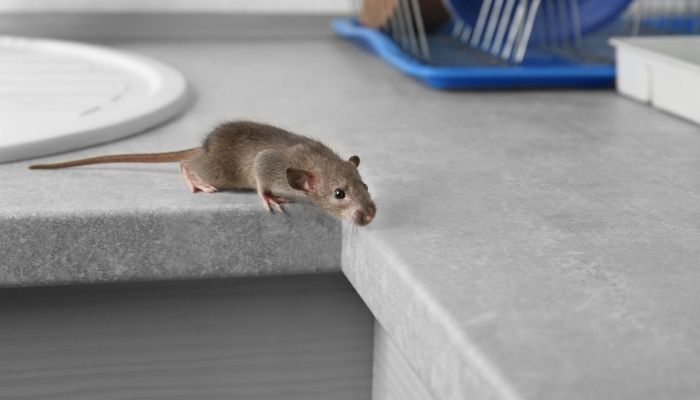
The impact of disease-carrying insect and vertebrate pests on Australia’s food safety, site hygiene, and overall public health remains a significant threat. However, further impacts from the Coronavirus, lockdowns, site closures, reduced staffing, and limited contractor visitation has limited our ability to manage pests. In particular, the ability to manage stored product pests and crawling insects such as cockroaches and vertebrate pests (e.g. rodents and birds).
Reduced staffing and site closures have meant that empty cafes, restaurants, and small producers are struggling with an unabated population and increases of pests when away from facilities. Quick and mobile pests, such as cockroaches, birds, and rodents are causing havoc because of easy access via concealed entry points and limited (or no) human intervention. In addition, extended storage of unused produce and whole foods have meant that food-related moths (flour, warehouse, and Mediterranean meal moths) and beetle (warehouse, flour, grain) to name just a few, are causing product spoilage at unprecedented rates.
With reduced contractor access and visitation, pest managers, food production, and food retail businesses need to consider long-term strategies, new options, and technologies to ensure pests are managed or monitored with less emphasis on being on-site in person. Many of these concepts are just slightly modified from the norm or completely new technologies. But when used in conjunction, they can limit the need for constant site/contractor access and improve the process of pest management.
Here are just a few concepts to consider:
Custom-made kits containing pest management traps, pheromones, and other devices can be sent to a facility, in conjunction with “virtual” tuition or instruction from the site’s pest manager. Therefore, systems can be deployed or checked by personnel when site access needs to be avoided. This may be a contentious or controversial approach, however, both the client and the contractor need to be innovative in performing pest reductions in these Covid impacted times.
By far and away the most impactful technology to enter the pest market is IoT (Internet of Things) technologies for rodent monitoring and early warning. Sensors such as RATSENSE will not only increase compliance and reduce the risk of disease and food contamination, the surveillance of pests in real-time (24/7) will reduce contractor visitation time and frequency.
Pest birds continue to impact food facilities, especially with lockdowns and limited site staffing in place. Loading docks and waste rooms, as well as production areas, need to be secured with long-term options, replacing short-term population control. Sensors in bird management can also assist with heat mapping the population density and distribution of birds within a facility.
Long-life UV lamps and larger glue boards in this space have improved fly management in recent years. UV fly units have become the mainstay of internal fly control and a synergistic approach can be considered by contractors and sites alike to maintain systems with limited contractor visits.
Long-life Pheromone Technology:
In recent years, traditional “Rubber Septor” release pheromones have been replaced by slow-release or glue matrix release pheromones. Sex attractant pheromones contained in the sticky matrix of a glue board will release over many months. This not only reduces the cost to allow for more devices within a grid system of monitors, but the extended life also further improves a contractor’s Covid compliance by interacting with devices less under the current circumstances.
Devices that replace insecticide use:
In most cases, pheromone technologies, heat treatments, glue board or physical trapping, vacuuming, and the like, present a strong case against the need for insecticides. Many of the modern monitoring and control devices extend the frequency of site visits. European food facilities have long been required to use alternatives to pesticides for pest management, many of which are now available in Australia. Businesses such as PestIT focus their resources to develop non-chemical treatment processes for modern food facilities.
As pest management specialists and an industry supplier to a wide variety of small and large businesses, PestIT’s focus is to supply non-chemical solutions to achieve the best possible pest control outcomes. We create, distribute and support our clients with pest control products and systems that are ‘cleaner, greener and smarter’. In today’s climate, our ‘green’ approach remains sensitive to managing broader implications for global warming, as well as controlling pests. By choosing PestIT, you help reduced waste, remove chemicals and lead the way forward for smarter technology. For more information, please visit www.pestIT.com
By Peter McCarthy, Director PestIT Pty Ltd.
Interested in learning more about the best pest management techniques from PestIT? Register your interest here.
_1.png)